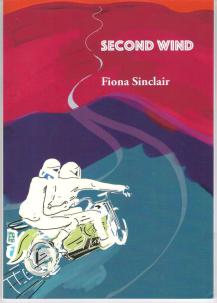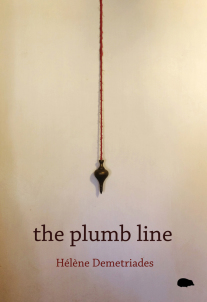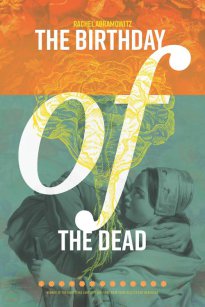
Fiona Sinclair, Second Wind,
Dempsey and Windle, 2022.
ISBN: 978-1-913329-66-2. 73pp. £10.00.
This is Fiona Sinclair’s third collection which indicates that she has staying power as far as output is concerned. It also reinforces the fact that she is by now an established ‘brand’.
The poet she most reminds me of, not in terms of style but in her energy and creative invention, is Les Murray. To echo one of Murray’s poems, Sinclair is distinguished by the “quality of sprawl.” Her poems invariably strain at the seams to contain the richness of her imagination. I suspect that she has never taken too kindly to being told to colour in neatly. She favours long loping lines that are reminiscent of Whitman and Ginsberg. Her push to excess is rarely less than enthralling and to her credit she maintains a steady control in the execution for the most part. It seems fitting that several of the poems in Second Wind are concerned with the challenges and exhilaration of motor biking, an apt metaphor for Sinclair’s poetic practice. Her poems fairly roar with propulsion while the reader must accept the subsidiary role of riding pillion and holding on tight.
Sometimes, however, she does seem to be in too much of a hurry which very occasionally results in lapses that are disconcerting to a pedant such as me. In ‘Selfies’, for instance, which begins: “Modern Narcissus’ gaze upon/Their reflections in selfie pools”, I wasn’t sure about the use of the possessive pronoun for Narcissus, especially when ‘gaze’ seems to be used here as a verb rather than a noun. Surely too Narcissus should be plural. Another example is the use of ‘illicit’ in the following extract. I couldn’t decide if this was sly wordplay or a Malapropism:
And when photos in silver frames illicit
“Granny, you were a looker”
smile at yourself as if in cahoots
with an old friend you had such times with. ‘Advice to old beauties’
Such infrequent flaws can be forgiven, however, set against the splendour of her work throughout the collection. This exuberance might compromise her work in terms of being considered well-crafted but she compensates for this with writing that is rich and vivid. It is difficult to provide representative quotes from Sinclair’s poems because for the most part they rely on an accumulative momentum for their impact. Certain lines, however, do stand out, not as pure embellishments but integral to the poem’s content. A poem about a passion flower for instance contains these lines: “my hopes for its survival/waning as its leaves became winter withered.” She is also capable of creating arresting images, as in this synesthetic image: “Hellos drop like cherry blossoms into the front garden as I work” ‘Covid Summer’
Her use of language is colourful, richly textured and idiosyncratic. These elements make for a truly distinctive voice. You would have no problem identifying her work in a line-up. A tour de force poem, ‘The Pleasures of Swearing’, is a representative example, which hits the ground running with its opening lines:
First time I discharge the F word,
a transgressive tingle, like flashing my tits;
the guttural ck satisfying as spitting,
the vowel discharge like a bullet.
Bloody, bollocks, bastard, milder on my swearing Scoville scale.
I had to Google the Scoville scale. This is wit bordering on the Metaphysical. There are numerous instances of such acuity throughout the collection. In this respect, she perhaps risks not being regarded as a lyrical poet but she is nevertheless capable of lyricism and one that is not merely ornamental but possesses depth and is founded on commonplace discourse. ‘Give me sleep’ for instance, employs the simple rhetorical device of anaphora very effectively:
Give me sleep that gathers like darkness on the horizon
of my consciousness, and slowly dissolves all thought.
Give me sleep when I have taken a beating from the day,
that will knock me clean out like a mercury blow.
While her default is to be expansive, a new trend is beginning to emerge in Second Wind with the inclusion of concise poems that are epigrammatic in mode. This is very much to her credit as it demonstrates the ability to expand her range. Second Wind opens with the enigmatic ‘Cuckoo’, which functions as a proem to the collection, and is short enough to give here in full:
This real cuckoo song
reverses time.
I close my eyes at the call
to pagan prayer,
that takes me back to the beginning…
Sinclair is a poet who is always worth reading and the fact that she continues to grow and develop rather than be satisfied to keep within the parameters of an already established style is another reason why she should be applauded.
David Mark Williams
To order this book click here
David Mark Williams writes poetry and short fiction. He has two collections of poetry published: The Odd Sock Exchange (Cinnamon, 2015) and Papaya Fantasia (Hedgehog, 2018). For more information go to www.davidmarkwilliams.co.uk
Hélène Demetriades, the plumb line,
The Hedgehog Poetry Press, 2022.
ISBN: 978-1-913499-33-4.
Price on subscription or via publisher’s website.
This debut collection was joint winner of the Hedgehog Poetry Press ‘Full Fat Poetry Collection ‘competition, 2021, and was published recently. The ‘Cult of the Spiny Hog’ is marked by its stylish presentation, and in this case, the blood-red inner linings to the covers suggest the hurt and menace we will encounter in these pages.
The collection is book-ended by poems about ‘Beginnings’ and ‘Departures,’ where Demetriades lays bare the abuse and emotional starvation inflicted by parents and the conflicting feelings of love and rejection experienced in such situations (the final section is in fact dedicated to both her parents). The central section, tellingly titled ‘Gravity’ shows the ballast provided by her own experience of parenting. Here we see the transformation effected by the opportunity to cut the Gordian knot of ‘nurture,’ leaving space for both ‘nature’ and a determination to avoid past patterns. ‘Rewilding’ shows a deft use of the holly tree as an image of the flowering of hope from seeds ‘buried deep.’ Images from the natural world crop up throughout the book, suggesting grounded-ness as well as intellectual sharpness; we meet a moth caterpillar, pollinating bees round the roses in Greenwich Park, tadpoles, and a blackbird being stoned.
In her ‘other’ life Demetriades is a transpersonal psychotherapist, and had also been an actor. It is not surprising therefore to see myth used as metaphor; and to observe the ‘monsters’ and ‘ogres’ that our fathers have been morphed into the frailty and indignities of aging as they literally lose the plot, and become subject to our own narratives. At the same time, her persona comes across strongly, even at times employing the imagery of thespian practice (‘In the Wings’) whilst convincing the reader of the authenticity of the experiences she chooses to share. ‘Caged’ makes rare use of the third person rather than first as a narrator – a device to distance the poet herself from particular uncomfortable memories?
The final poem, ‘An Alembic on the Threshold,’ is quasi-metaphysical in its use of metaphor, shifting from watching her father’s final hours, in which ‘the doors of your mind/fly off their hinges,’ to a Donne-ian comparison of the rising and falling of the chest as the eponymous alembic.
The themes of oppression and forgiveness, liberation and loss, make her poetry accessible (I can’t bring myself to use the word ‘relatable’) to many of her readers. A disturbing, thought-provoking read which should be embraced, and lingered over.
Hannah Stone
Copies from the publisher or direct from the author
Hannah Stone is the author of Lodestone (Stairwell Books, 2016), Missing Miles (Indigo Dream Publishing, 2017), Swn y Morloi (Maytree Press, 2019) and several collaborations, including Fit to Bust with Pamela Scobie (Runcible Spoon, 2020). She convenes the poets/composers forum for Leeds Lieder, curates Nowt but Verse for Leeds Library, is poet-theologian in Virtual Residence for Leeds Church Institute and editor of the literary journal Dream Catcher. Contact her on hannahstone14@hotmail.com for readings, workshops or book purchases.
Rachel Abramowitz, The Birthday of the Dead, Conduit Books & Ephemera, 2022.
ISBN: 978-1733602075. 68pp. $18.00.
Who is the speaker in these poems? “I am a monster with a great sunken heart,” she tells us in “A Fable,” “I am a cat with a baby in its mouth.” “I am an unsmall rabbit at dusk / under the pine tree,” she announces in “Love Letter.” “I am a serpent-head fish / on the table of a small house in the woods.” “What a Terrible Magician” begins,
I am. I can’t even turn the canary’s heart
into whispered black ash, a poor early diamond.
“I am a village, tiny in the distance,” she starts “Traité d'Ostéologie,” a poem inspired by Alexander Munro’s 1759 drawing of a female skeleton. “Poem [Under the modern regime of beauty camouflage, everything about woman is detachable, except her ears.]” begins:
I have one of those removable
complexions.
I molt blonde hair, shed my automatic teeth
and discard my mechanical eye. I am older than hieroglyphics;
I gain every lap. I walk the plank…
The narrator is ghostly, omniscient, omnipresent. It is tempting, in fact, to say that the narrator is Death itself, as so many of these poems involve decay, the omnipresence of death, a voice that seems to speak from deep experience. The poem “Vantablack” begins: “All the animals you know / will die. You set food out for them anyway.” It’s as if the narrator shrugs her shoulders in bewilderment. Why bother? The title of the poem, “Each Meal Here Was Once Alive” hints at a similar reality. “Figs swell and split /
a cicada shedding its
skeleton.
When you hold one out to me
I drive my thumb into its seeded throat.
Wow! What a violent image! Abramowitz amplifies this
reflection in “A Hunger”: “As if the world were made of nothing but hunger.” ”The More I Give, the Hungrier They Get” is another poem with a similar theme: is this really Death
kvetching?
The prose poem, “Your Life in Art” begins with the observation, “Unlike the living, the dead
tell you when they are tired of you.” The confident voice sounds like it knows something you don’t know. The poem ends, “I walk back up the drive, and feel the magnets in my blood like ancient
hands pull me toward the dirt.”
“Two-Headed Tulip,” with an epigraph-like subtitle locating the poem - Green-Wood Cemetery, Brooklyn – begins in that same insider-confident tone: “Of course dead things bring / up the best
flowers.” The tulip grows in a patch of grass presumably over a grave, and the poem ends, “Even the dead / are reaching like roots for your name.”
Paintings are important in
Abramowitz’s poetry. We’ve seen this already in “Traité d'Ostéologie” and “Your Life in Art.” “The Puzzle Monster” is another, inspired by Francis Bacon’s 1969 triptych, Three Studies of Lucien
Freud, which depict Freud trapped in a series of cages. “Lost Angel Head” and “An Elephant Man Lives with the Mirror from Francis Bacon’s Studio” are both After B. Catling, Brian
Catling, a British poet/sculptor/performance artist.
“My Death Is a Rose-Apple” clearly depicts a still-life,
beginning,
and sometimes the green of paint under a tree
where the artist has decided to capture
this field and its cow and love in her festival dress.
My death looks humbled by the flowers in a painting,
or by the red hat of a politician’s wife. This red hat,
my death says, is like all the flowers in one, as reflected in her face –
the politician’s wife has been dead for a long time, and
knows what my death
is talking about, and even now is dying in a painting.
A rotting purple fig on the table under the vase of tulips.
“Dead-Color” is another poem
involving a rotting still life. “I had just finished painting the still life when it began to move,” Abramowitz writes, and later in the poem, “the painting began to rot like a
cantaloupe….”
“The Orange” and “Drosophila Melanogaster”
(scientific name for the fruit fly) are two others that address rotting vegetation (a popular subject of many still life paintings). She calls the fruit flies “zooming angels, sent by life itself /
to shepherd this banana / into its afterlife…”
On this theme of decay, “The Future Has an Ancient Heart” begins, “All the peaches go bad at once. / my riders enter from the left, single trumpet – // Decomposition!” “My First Disappointment Was” likewise elaborates on the idea.
that they weren’t pears, blushed undersides
loopy for the ground, sack-heavy and pulpous-
sugared. They were apples, severe, green-sick,
too high up to contend with dirt.
So who is the narrator of these poems? Is she really Death? The reader will come to his or her own conclusions. The speaker wickedly tells us in “Anniversary”:
I married the last spoon
in the drawer, the one with a chip
in it from when it got caught
in the disposer and whirred
and whirred the sound that hell
must sound like, until someone turned it off
(it wasn’t me)
and a quiet descended like lint
Our narrator knows all about hell, all about rot and putrefaction. As she writes in the poem titled “Hell,” “When I was famous I held my heart in my hand like a plum. // Hell is a beautiful plum.” The title poem, “The Birthday of the Dead,” puts the whole discussion succinctly: “The theme of this party is truth irreducible.”
The Birthday of the Dead takes ultimate destinies head on. The poems are dazzling and sinister. This is an overpowering, intense debut collection.
Charles Rammelkamp
To order this book click here
Charles Rammelkamp is Prose Editor for BrickHouse Books in Baltimore, where he lives, and edits The Potomac, an online literary journal. http://thepotomacjournal.com. His photographs, poetry and fiction have appeared in many literary journals. His latest book is a collection of poems called Mata Hari: Eye of the Day (Apprentice House, Loyola University), and another poetry collection, American Zeitgeist, is forthcoming from Apprentice House.



